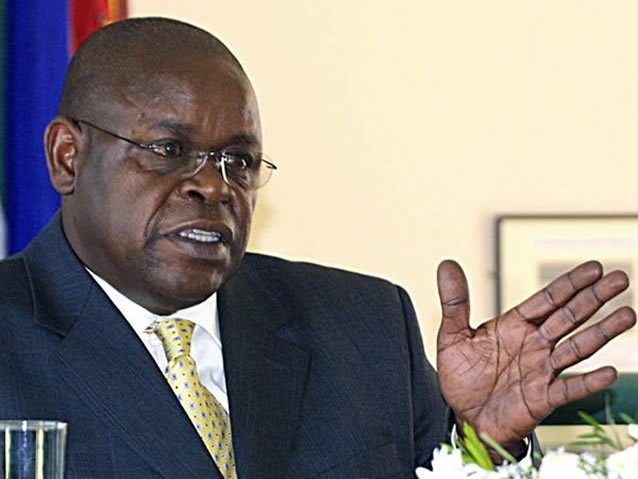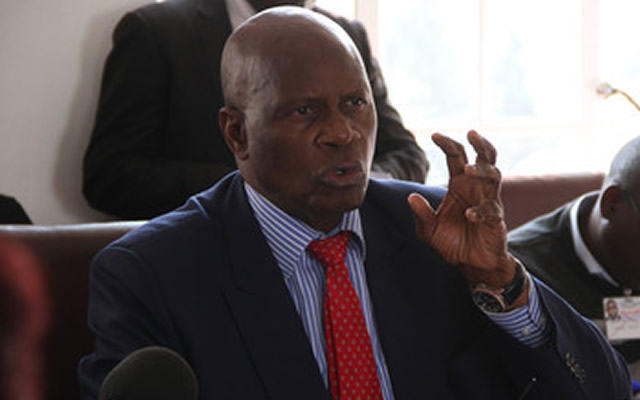EDITORIAL COMMENT: Citizenship Act needs realignment

 THE problems now faced by the Registrar General when it comes to issuing passports and other documents that confer citizenship highlight the need for our Citizenship Act to be brought into conformity with the new Constitution and for Parliament to decide, within permissible limits, who is entitled to be a Zimbabwe citizen and who can and who cannot hold dual citizenship.
THE problems now faced by the Registrar General when it comes to issuing passports and other documents that confer citizenship highlight the need for our Citizenship Act to be brought into conformity with the new Constitution and for Parliament to decide, within permissible limits, who is entitled to be a Zimbabwe citizen and who can and who cannot hold dual citizenship.
Briefing the Parliamentary Committee on Women’s Affairs, Gender and Community Development this week, Registrar General Tobaiwa Mudede said he was receiving passport applications not only from those who were definitely entitled to citizenship by birth, where the Constitution is pretty definite about maximum rights, but also from many who were claiming citizenship by descent, where the Constitution gives Parliament quite a lot of discretion.
The Constitution lays down three different types of citizenship: by birth, by descent and by registration. Citizenship by birth and only citizens by birth have a constitutional right to dual citizenship, is for those born in Zimbabwe with at least one parent or one grandparent being a citizen by birth or descent, or, if they were born in Zimbabwe before the Constitution came into force, with at least one parent a citizen of a Sadc country, which basically sorts out almost all of those who have a parent who was a migrant worker. There is also provision for children of Zimbabwean diplomats and others on State service born outside the country to be registered as citizens by birth, a standard saving in every country’s law.
Citizenship by descent can be claimed by anyone born outside Zimbabwe with a parent or grandparent being a citizen by birth or descent or with a parent being a citizen by registration. This can be sweeping and is the provision that gives Mr Mudede most of his headaches.
It is technically possible for someone whose family has lived outside Zimbabwe for many generations to still claim Zimbabwean citizenship so long as every other generation some ancestor has claimed Zimbabwean citizenship. This is not a bad provision, since it means that no one with some tie to the country can ever be stateless and can always regard Zimbabwe as home, although it can raise other questions.
But Parliament has the right, under the Constitution, to decide if a citizen by descent is entitled to dual citizenship, or which classes of citizens by descent are so entitled. So far Parliament has not decided in an Act that totally agrees with the new Constitution although under the Act passed in terms of the old constitution such people were not entitled to dual citizenship.
Our feeling is that if citizens by descent are to be allowed dual citizenship this could perhaps be limited to one or two generations, a general provision in most countries.
At some stage we need to balance rights with the responsibility not to become an issuer of passports of convenience while still looking after our own if no one else will give them a home or a nationality.
The third category of citizenship is that of registration, where the Constitution gives foreign spouses of Zimbabweans a right to citizenship after five years, which is more than long enough to decide whether a marriage is fake or a mistake, and to others who have worked in the country for 10 years, again long enough for us to decide whether the person is a decent hard-working person.
Parliament can put in lower limits, if it wishes and can ban these citizens, or some of them, from holding other citizenships.
Parliament is also, under the Constitution, supposed to enact provisions that set up a Citizenship and Immigration Board, which can decide if applicants for citizenship by registration meet the requirements and can decide which foreigners are allowed to live and work in Zimbabwe and under what conditions. Obviously such a board needs careful guidelines in new citizenship and immigration laws that conform to the Constitution.
Our existing citizenship laws, which contain several provisions that are outlawed by the new Constitution, was seen in the debate over that constitution, to make Zimbabwean citizenship unduly exclusive and made it all too possible for people to become effectively stateless.
We have sorted this out with the new constitutional rights. We now need to debate the fine detail and work out how we shall implement the optional details, like should we allow dual citizenship for those whose citizenship is by descent or registration and, if we do, for how many generations.
This requires debate both within and outside Parliament, followed by a new Citizenship Act that will conform to the new Constitution in both word and the spirit behind the Constitution, a spirit that seems to be more inclusive than exclusive and more welcoming to those who want to retain their ties to Zimbabwe. The debate needs to start now, since we do need that new law as soon as possible.









Comments